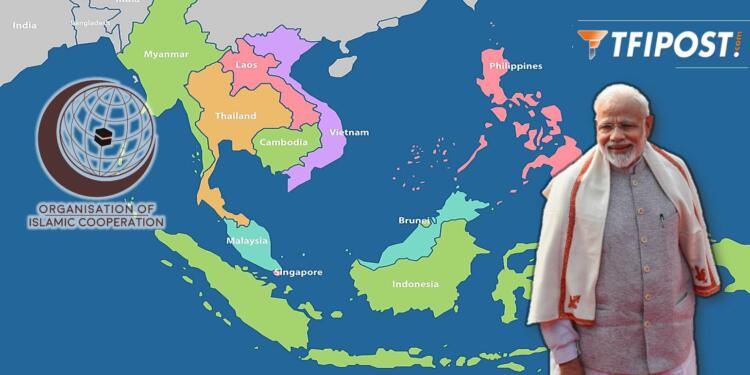OIC has been one big headache for India. Time and again it has tried to intervene in India’s internal trade. With consistent chiding, India has given it back as well. But, sometimes that’s not enough and that is why India is slowly poking a hole in its Southeast-Asian section of the grouping.
Indonesia scraps export levy
Indonesia has again scrapped its policy of levying duty on its palm oil exports. According to its Finance Ministry officials, the export levy had led to the piling up of inventories, which is why government intervention was required to clear them. Earlier this year, the country had banned the export of palm oil to other countries starting April 28. It had imposed the ban due to the shortage and soaring prices of edible oil in the Southeast Asian nation. Later, on May 23, it lifted the ban and imposed Domestic Market Obligation (DMO) to ensure supply in the domestic market.
Later, Indonesia allowed those companies who were reluctant towards domestic supply initiative to export. The only condition was that they had to pay $200 per tonne over and above export tax and levy. Even then, the exports did not pick momentum and the problem forced the government to remove levy.
Equations between India and Indonesia
Indonesia is the world’s biggest producer of palm oil. Logically, it is the biggest exporter as well. However, its nonuniform export policies have raised a big question mark on its ability to provide cooking oil to the world. India is also one of the countries hit by this kind of erraticism. However, India used the opportunity to leverage its geopolitical interests. Let’s see how.
India is the world’s number one importer of palm oil. Ideally, Indonesia should have been our top oil supplier and it was for a long period of time. In fact, the India-Indonesia bond has been extremely close. However, it is also a fact that the world’s largest Islamic country had tried to stab India in the back when we were fighting with Pakistan in 1965. It had even offered to open a front for Pakistan in the Andaman and Nicobar Islands and even preparations were on for sending submarines. Additionally, Indonesia has always been hand in gloves with OIC nations in launching diplomatic offences against India.
India Malaysia palm oil trade
It simply meant that just like Russia is our second front for crude oil, we had to find another option for palm oil. Malaysia became the second option. Even that was not easy. Mahathir Mohammad, Malaysia’s Prime Minister had openly criticised India’s decision to abrogate Article 370 and said that India had invaded and occupied the region. There were demands in India of banning palm oil imports from the country. Later, Mahathir acknowledged that he was at fault for Malaysia’s strained relationship with India. It did bring some thaw in the relationship and the palm oil trade between both countries started to rise again. By the end of June 2021, Malaysia had in fact replaced Indonesia as the top palm oil supplier to India. Indonesian imports fell by 32 per cent on year on year basis.
In May this year, India expressed its willingness to increase palm oil imports from Malaysia. B N Reddy, the Indian High Commissioner to Malaysia had said that India wanted 2 million tonnes more palm oil from Malaysia over that five-year average. In other words, India indicated to Indonesia that it is willing to reduce its dependence on Indonesian palm oil to O per cent.
Trick to keep both countries on tenterhooks
Malaysia and Indonesia both are key members of OIC, especially in Southeast Asia. In fact, in the wake of Pakistan’s unstable polity, they form the base on which OIC can rely for implementation of their agendas. But, by making both of them compete for exporting palm oil to India, India is shaking the pillars of OIC in the region. Moreover, Indonesia does not come overtly against India while Malaysia does. By making it dependent on revenue from India, we are increasingly making Malaysia passive and Mahathir’s acknowledgement of his mistake on Article 370 is a prime example of that.
If somehow India is able to ensure that Indonesia is not eliminated from our import basket and diversify it in favour of both countries, it could turn out to be handy for us. In short, India has the opportunity to snatch this segment of OIC from radical Islamic hands.
Support TFI:
Support us to strengthen the ‘Right’ ideology of cultural nationalism by purchasing the best quality garments from TFI-STORE.COM

























